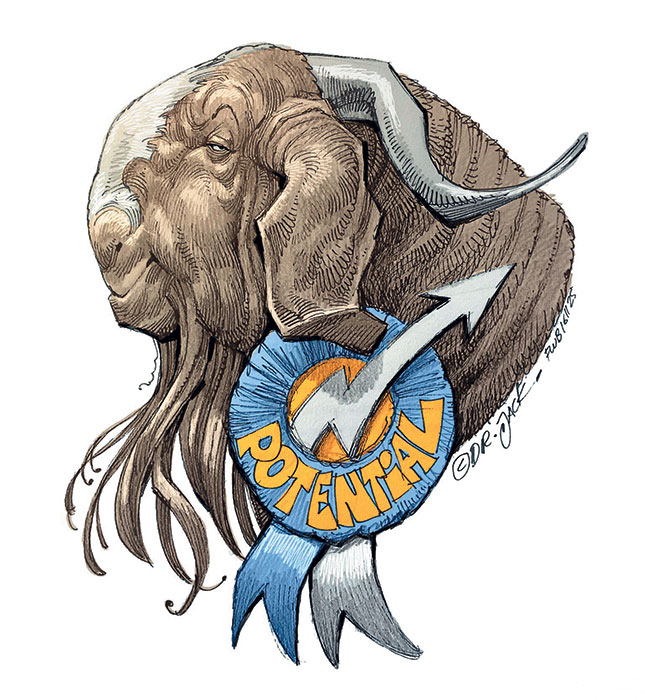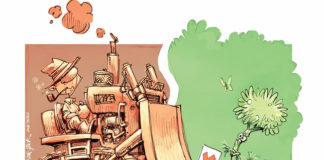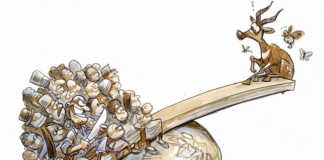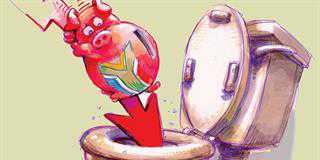
South Africa’s goat industry can expect many exciting and interesting future developments. While the establishment of developing farmers in South Africa is a government priority, I believe the manner in which goverment is currently attempting to achieve this objective is not relevant to the challenges facing our goat industry.
I have been involved in the industry for 26 years, and currently produce and export goats to several countries in Africa, the Middle East and Asia.
I suspect that the South African goat industry does not appreciate how great the local and international demand for live goats is. This demand is driven partly by cultural practices, but, increasingly, it can be attributed to the health characteristics of goat meat.
South Africa’s steadily urbanising population is demanding that goat meat become more readily available in supermarkets and butcheries, and there are also many foreigners living in the country who enjoy eating goat meat.
Restaurants in our main cities are increasingly sourcing goat meat to cater for these foreigners’ preferences.
These are just a few of the many opportunities available to our industry.
To capitalise on these potential opportunities, the goat industry has to realise that every farming operation has to be run as a business.
If we want to convert South Africa’s many subsistence-type farming operations into sustainable income-generating enterprise, they must be commercialised so that all our goat farmers can aim to produce the maximum kilograms of meat per hectare in the shortest possible timeframe, with the lowest input costs.
This also needs to be done sustainably.
There is simply no other way that a commercial goat farming operation can be profitable.
The problem with the industry
South Africa has a largely pastoral approach to goat farming. To establish emerging farmers, government provides each aspiring farmer with a small piece of non-economically viable land, and a nuclear flock of 10 to 20 animals.
The farmer is then expected to generate a sustainable income. This is unrealistic; even a flock of 20 female Boer goats managed under the best conditions with best practices and a 150% kidding rate/ season will not be enough to produce a sustainable, liveable income for the farmer.
Government’s and industry stakeholders’ approach to goat farming must change from this pastoral/communal mindset to a commercial mindset.
We should aim for a smaller number of sustainable commercial operations on economically viable farm units that are managed as businesses, rather than many non-economically viable subsistence farmers.
We should also use acceptable animal husbandry practices to improve the quality and quantity of the animals that we produce.
I recently received an enquiry from a buyer in the Middle East who wanted to procure 10 000 slaughter goats a month.
This is by no means the only enquiry I’ve received for such large numbers of goats. However, at the moment, our goat industry cannot supply this international market, as we are not even able to consistently satisfy local demand.
Commercialising farmers
To move from pastoral to commercial goat production, a number of requirements must be considered. First, as mentioned above, producers must own economically viable farms. This implies that we need to move away from communal grazing systems to a farming system in which each owner can farm sustainably and independently.
Besides the economic benefits, this will allow for the implementation of planned breeding seasons with selective stock, thereby improving the quality of goats.
The first step to accomplishing this is to accept that not everyone can farm. A good farmer is a dedicated professional with a passion for what he or she farms, who runs a farming enterprise as a business founded on sustainable production practices.
Having only dedicated, passionate and successful goat farmers will significantly contribute to reducing unemployment and poverty.
Emerging commercial goat farmers must be given ownership of their farms so that they can use this as collateral to access capital and production loans. They must also be equipped with superior animal production knowledge and skills.
A successful commercial goat operation cannot be achieved passively; all aspirant commercial goat farmers must first obtain animal husbandry, stockmanship, grazing management and business management skills so that they can be actively involved in their farming operations.
They must also have the business acumen to run their farms as profit-generating businesses. These farms must be able to cover production costs and the repayment of loans. Profits must be reinvested into the business.
Emerging commercial goat farmers need to fully understand the industry, so that they are not taken advantage of by unscrupulous traders who would underpay them for their goats.
They must thus be able to negotiate the highest possible price based on market demand, and must also be capable of marketing goats directly off their farms.
Sustainable farming practices
Goat farmers need to urgently adopt sustainable goat farming practices, especially in terms of grazing.
The communal grazing practice currently used benefits neither the farmer nor the livestock, as there is often an ongoing battle between livestock owners for the best available grazing. Grazing is also often quite poor as a result of over-grazing.
Communally grazed livestock usually have no set breeding seasons, and control over breeding is often lacking.
Spread of disease is also a significant challenge. All of these issues result in the low productivity and quality of these animals.
Management input is inversely related to a farmer’s financial input into the operation. This means that the less effective the farmer’s management of his or her farming operation, the greater the costs of the operation, and the lower the profit generated by the business.
To take an example from the current drought, those farmers who were not proactive and did not implement feed banks, or save some grazing camps to mitigate the effects of the current drought, are worse off than farmers with high management input, were proactive and who planned ahead.
It is important for all goat farmers to remember that smallstock farming is not something that can be done by remote control. It is a full-time, hands-on occupation that requires passion, hard work and dedication.
Management scheme
My goat farming business operates on three pillars. If any of these pillars is not given full consideration, my whole operation will fail.
The first pillar is my Boer goats’ genetics. Top-quality genetics produce top-quality animals and production, while
sub-standard genetics produce poor animals and production.
The second pillar is animal health. While livestock pharmaceuticals are often expensive, they are vital. Goat farmers who take shortcuts in animal health, such as skipping vaccinations, dewormings and dippings, do so at their own peril.
The third pillar is nutrition, and here I am not referring to feedlotting. Goats are adapted to veld grazing and browsing, and have outstanding disease and parasite resistance. This means that goats of superior genetics who benefit from good management require some of the lowest input costs of all livestock.
However, they still require excellent supplementary nutrition during certain times in the breeding cycle for maximum production.
Planning is essential in a commercial goat farming business. It is important to understand the trends in the increasing demand for goat meat, and to factor in the effect of nature’s cycles when working towards meeting these demands.
This will help ensure maximum profitability and sustainability. – Lloyd Phillips
The views expressed in our weekly opinion piece do not necessarily reflect those of Farmer’s Weekly.
For more information, phone Johan Steyn on 072 594 4626, email him at [email protected], or visit patriotboergoats.co.za.
This presentation was given at the 2016 Goat Agribusiness Conference, hosted by Goats Unlimited in Durban, KwaZulu-Natal, on 02 November 2016.













